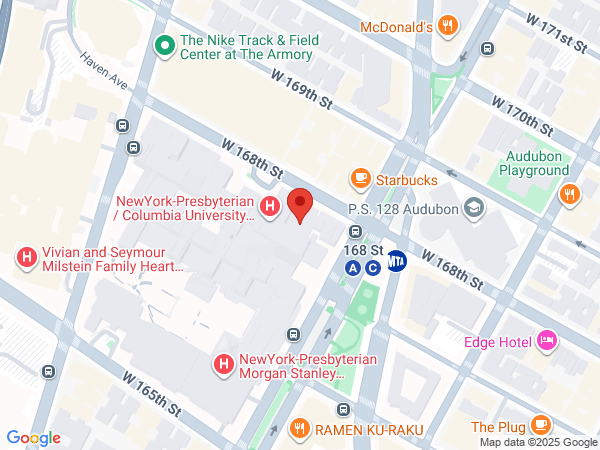Targeted Lipidomics
This service is provided by the Biomarkers Core Laboratory.
Overview
Lipidomics, the systems level analysis of lipids and their interactors is an essential strategy to understand the mechanisms underlying the signaling, metabolism, trafficking, and homeostasis. Lipidomics can provide new insights leading to the discovery of novel prognostic and diagnostic signatures for cardiovascular diseases, diabetes and more recently in neurodegenerative disorders. The LCMS based lipidomics platform at the Biomarkers Core Laboratory (BCL) can provide quantitative information on over 590 individual lipid species belonging to 34 lipid classes including glycerolipids, sphingolipids and glycerophospholipids.
Lipids are extracted from biological samples (cells, plasma, serum, tissues) using a modified Bligh-Dyer method after spiking with internal standards. Chromatographic separation of extracted glycerophospholipids and sphingolipids is performed using normal-phase HPLC while sterols and glycerolipids are separated on a reverse-phase column. Quantitation of lipid species is accomplished using dynamic multiple reaction monitoring (MRM) method under positive and negative electrospray ionization modes in conjunction with referencing of appropriate internal standards. Lipid classes covered include, FC, CE, AC, MG, DG, TG, Cer, SM, MhCer, Sulf, LacCer, GM3, GB3, PA, PC, PCe, PE, PEp, PS, PI, PG, BMP, AcylPG, LPC, LPCe, LPE, LPEp, LPI, LPS, NAPE, NAPS, and NSer, currently totaling 593 individual lipid species. Additional details on the lipid species can be found on the downloadable list.
Instrumentation
At BCL, the targeted Lipidomics assay utilizes the LC-MS/MS platform comprised of Agilent 6490 Triple Quadrupole (QQQ) MS integrated with an Agilent 1260 Infinity LC system. The Agilent 6490 LCMS system incorporates iFunnel technology enabling 10X increase in sensitivity and zeptomole detection limits at conventional HPLC flow rates. When coupled with1260 UHPLC system, the 6490 QQQ MS with the 1 millisecond dwell times and no collision cell cross talk allows reliable peak integration and quantitation. It is also characterized by up to six orders of linear dynamic range, and reduced signal-to-noise ratio ensuring robust performance. For very complex sample mixtures, the 6490 QQQ allows dynamic multiple reaction monitoring (MRM) methods with up to 4,000 transitions per method and polarity switching in as little as 30 milliseconds.
Hours
The BCL is open Monday – Friday, 9am to 5pm. Samples may be dropped off during these hours and dry ice must be used during transportation.
Eligibility and Requirements
This service is available to all researchers at Columbia University.
Investigators who are not affiliated with Columbia University will need to complete a service agreement that must be signed by the legal or purchasing departments of both parties. This process takes approximately four weeks to finalize. The requester's legal or purchasing department’s service agreement template is typically used, but one can be provided by Columbia if necessary. For more information on service agreements and pricing for non-CU initiated studies, please email the BCL director, Dr. Renu Nandakumar.
The BCL is not Clinical Laboratory Improvement Amendments (CLIA)-certified. The data generated from BCL is to be used for research purposes only and not for clinical and diagnostic applications.
Submitting Requests
A new protocol submission request must be initiated in iLab for every new project. Samples will not be accepted without an active service request. Additional request details forms must be submitted if more assays or samples need to be added to an existing protocol. Please contact us for the instructions on how to register and submit a service request through iLab.
Sample Submission
Please review the BCL’s User Policy and General Sample Submission Guidelines prior to submitting the samples and complete the downloadable sample list template to be delivered along with your samples.
When to Request This Service
We strongly encourage investigators to contact BCL director, Dr. Renu Nandakumar, prior to submitting a new service request. This will facilitate a discussion on the project, scope, feasibility, appropriate analytical strategy and other sample requirements.
Cost
A complete list of the mass spectrometry-based assays including lipidomics and associated cost is available on our iLab site.
Cite it, Submit it, Share it!
If your research has benefited from one or more Irving Institute resources, please remember to:
- Cite our CTSA grant, UL1 TR001873, in any relevant publications, abstracts, chapters, and/or posters.
- Submit your publications to PubMed Central (PMC) for compliance with the NIH Public Access Policy.
- Share your research updates with us by sending an email to: irving_institute@cumc.columbia.edu

